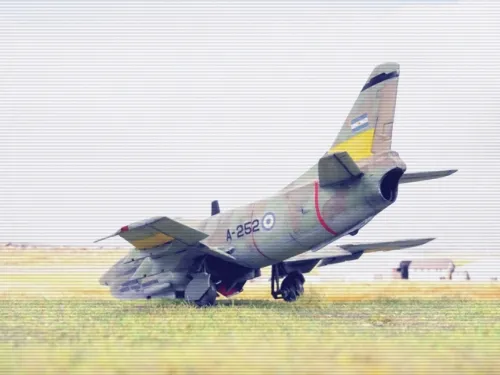
Review: Missile Command Delta (Switch)
Missile Command Delta, from creators Mighty Yell (The Big Con) and 13AM Games (Runbow), presents an experience of two distinct parts.
The first serves as a turn-based strategic interpretation of the classic arcade game Missile Command, originally crafted by Dave Theurer; a concept that, in theory, shouldn’t succeed but truly does. The second attempts, rather unsuccessfully, to add context to the strategic gameplay by immersing you in an underground bunker with friends, necessitating the unlocking of its secrets through a first-person viewpoint. Honestly, I wish this latter portion had been left on the editing floor.
However, let’s begin on a bright note. Scattered within the bunker are terminals that allow you to engage with the ‘classic’ Missile Command framework. In this setup, you take charge of two computer displays: the left mirror reflects the original 1980 gameplay, featuring missiles navigating a hexagonal grid towards the bases you need to safeguard; the right reveals your inventory of defensive missiles, shown as ‘cards’ that you can select for use in the arena.
While the original game required you to maneuver a cursor with a trackball to pinpoint the exact location for firing, Delta completely abandons that method. Instead, you pick the missile you wish to deploy from the available cards, then choose from around two to four bases to launch from. The game indicates the anticipated trajectories of both your and opposing missiles, making your goal to eliminate all incoming fire before any reach your bases.
You may use as many cards as desired to clear the battlefield until you deplete your options, but to ‘ace’ each terminal, you must maintain your energy usage at or below the assigned limit. So if you aim for a target of 10 and deploy two ‘Terrier’ missiles simultaneously, you hit your energy cap in one go. You can continue, yet achieving an ace on each terminal is often vital for advancing the narrative.
The game introduces its strategy gently, but things become quite hectic later when you’re tasked with defending nearly a dozen missiles at once. New missile types and shields become available to manage, enriching the gameplay as you progress. It may take a moment to adjust to the slower pace if you’re accustomed to the original Missile Command, but discovering the best methods to protect your bases is indeed thrilling and fulfilling.
However, it never genuinely conveys the sensation of a war unfolding. There are no real stakes at play, and the characters primarily opt to continue tinkering with various terminals because that’s supposedly the key to their eventual escape. There are fleeting moments of curiosity that held my attention – Who is the enigmatic Khan figure? And what were those footsteps on the lower level? Yet, these are surface-level elements, and the choice to place you in the role of a teenager feels misguided.
It resembles a take on the ‘isekai’ trope, but it simply doesn’t fit well here. If I’m engaging in a Missile Command game, the stakes must be much heightened. I don’t need to read Victor lightheartedly pondering if the previous bunker inhabitants did the dishes or not.
Regarding the actual gameplay in these segments, you’ll gradually navigate the bunker, opening cabinets and drawers, discovering new missile cards, and toggling various switches to solve puzzles and access new sections. It’s adequate, though the graphics leave a lot to be desired. Rooms lack detail and ambiance, resulting in an experience that feels less like a mysterious war bunker filled with stories and memories, and more like methodically going through the motions, desperately racing to progress the narrative to find the next terminal.
Credit where it’s warranted, though: the music is fantastic. It combines ethereal, retro-inspired ambient tracks with more intense interpretations during the ‘proper’ Missile Command gameplay. If the visuals fail to convince you that you’re in a true underground bunker, the music triumphantly achieves that. It radiates mystery and intrigue, and I often found myself pausing just to let it play in the background.
A quick note on performance: given the simplistic visuals, I would have anticipated Delta to run at 60fps, but it consistently operates at 30fps on Switch. It’s stable, however, so I have no significant complaints in that respect. On Switch 2, the game typically functions well, but if you happen to fail during a main attack sequence, it will frequently crash upon reloading. Definitely something to note, and an issue I suspect will be patched shortly.
Conclusion
Missile Command Delta is an unfortunate misstep from Atari. I genuinely want to enjoy it; indeed, I do appreciate the engaging turn-based strategic gameplay discovered within the various terminals. The issue lies in its surrounding dull exploratory segments and a narrative that simply fails to resonate.
There’s a robust foundation present, and I would love to see Atari delve deeper into Delta’s mechanics in the future, but more thought is necessary in the delivery of such an intriguing concept to the player.
